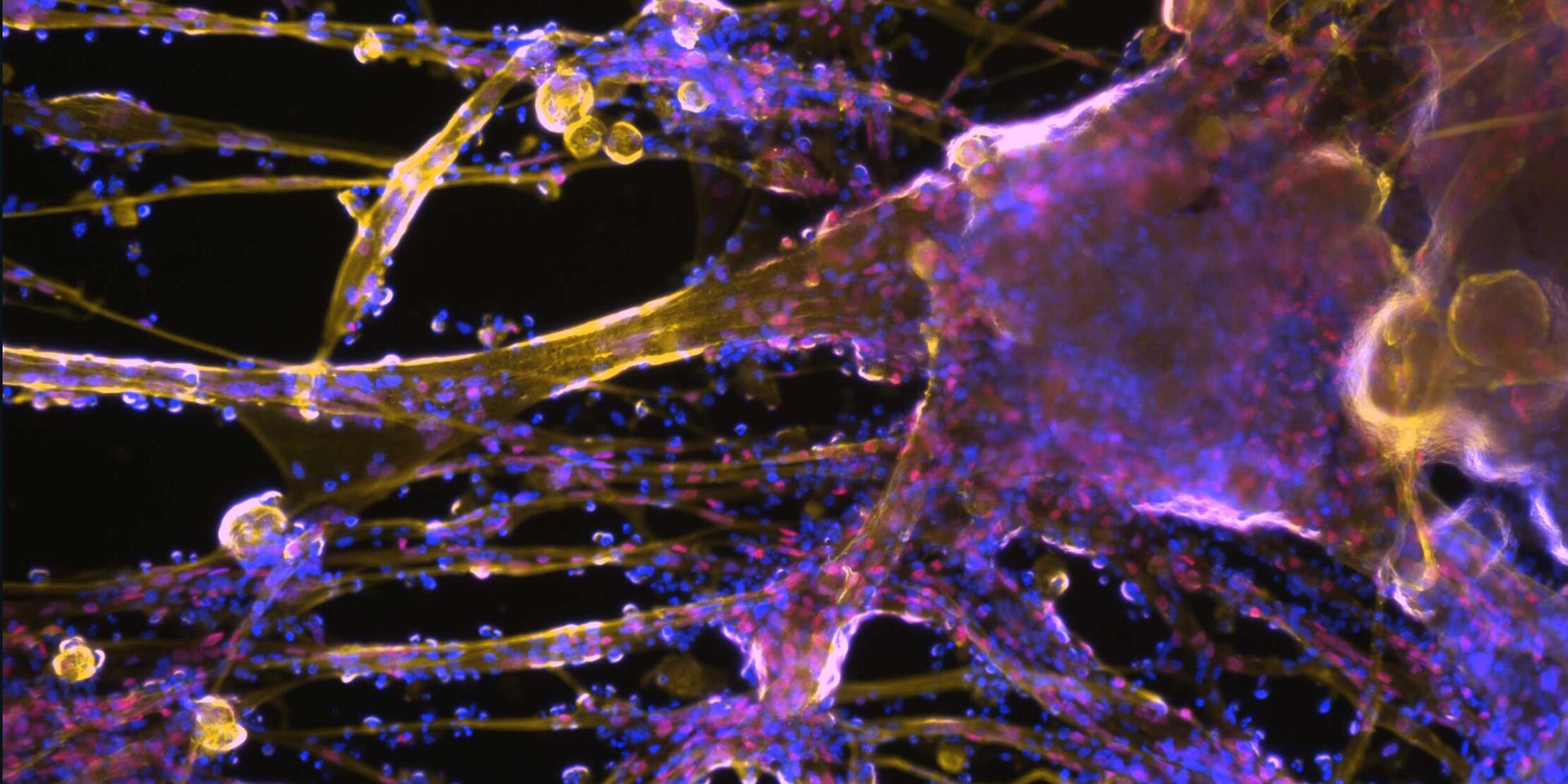Tokyo (SCCIJ) – A new method developed in Switzerland allows large quantities of muscle stem cells to be safely obtained from cell culture. It provides a potential for treating patients with muscle diseases – and for those who would like to eat meat not from animals.

Muscle stem cells and fibers can be grown in the laboratory from reprogrammed connective tissue cells (microscopy image) (Source: ETH Zurich / Bar-Nur lab).
Reprogrammed cells
Professor Ori Bar-Nur and his team at the Swiss Federal Institute of Technology (ETH) Zurich grow muscle cells from mice in the laboratory, but the researchers are also interested in human and cow cells. Promising applications resonate with both: human muscle tissue cultured in the lab could be used in surgery, while human muscle stem cells could help people with muscle diseases; meanwhile, lab-grown cow muscle tissue could revolutionize the meat industry by enabling the production of meat with no need to slaughter animals.
For now, however, the ETH team’s research is focused on optimizing the generation of muscle stem cells and making it safer. They have now succeeded in doing so via a new approach. The scientists at ETH Zurich use a different, easier-to-grow cell type as the starting material for generating muscle cells: connective tissue cells. Using a cocktail of small molecules and proteins, they molecularly “reprogram” these cells, thereby converting them into muscle stem cells, which then multiply rapidly and produce muscle fibers.
“This approach enabled us to produce large quantities of muscle cells,” explains Xhem Qabrati, a doctoral student in the Bar-Nur group and one of two lead co-authors of this study. “Although muscle cells could also be cultured directly from muscle biopsies, they tend to lose their functionality after isolation, rendering it challenging to produce large quantities of cells.”
Help with muscle dystrophy
The muscle cells produced this way are also fully functional, as the researchers have shown in experiments with mice suffering from Duchenne muscular dystrophy. In humans, this rare hereditary disease leaves sufferers lacking a protein necessary for muscle stability, meaning they experience progressive muscle wasting and paralysis.
The ETH Zurich scientists injected non-defective muscle stem cells into the muscles of Duchenne muscular dystrophy mice carrying this defect. They could show that the healthy stem cells form repaired fibers in the muscles.
“Muscle stem cell transplantation of this sort could be helpful for patients with advanced Duchenne, who are already severely affected by muscle atrophy,” explains Inseon Kim, another doctoral student in the Bar-Nur group and a lead co-author of this study. The method is suitable for producing the required large quantities of muscle stem cells. The fact that it does so without genetic engineering and the associated risks makes it attractive for potential future therapeutic use in humans.
Text: Fabio Bergman/ETH Zurich (Editing by SCCIJ)





























